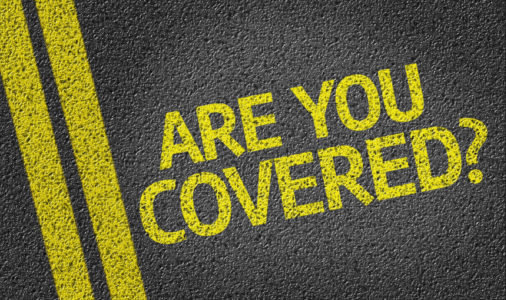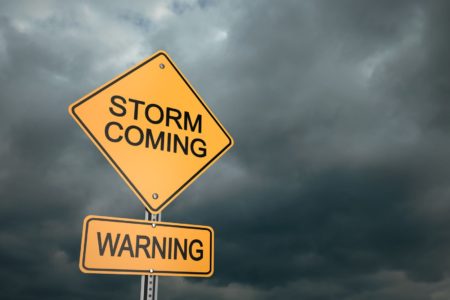Does auto insurance cover mechanical failure?
Free Car Insurance Comparison
Compare Quotes From Top Companies and Save
Secured with SHA-256 Encryption
Brad Larson
Licensed Insurance Agent
Brad Larson has been in the insurance industry for over 16 years. He specializes in helping clients navigate the claims process, with a particular emphasis on coverage analysis. He received his bachelor’s degree from the University of Utah in Political Science. He also holds an Associate in Claims (AIC) and Associate in General Insurance (AINS) designations, as well as a Utah Property and Casual...
Licensed Insurance Agent
UPDATED: Jan 5, 2024
It’s all about you. We want to help you make the right coverage choices.
Advertiser Disclosure: We strive to help you make confident car insurance decisions. Comparison shopping should be easy. We are not affiliated with any one car insurance provider and cannot guarantee quotes from any single provider. Our partnerships don’t influence our content. Our opinions are our own. To compare quotes from many different companies please enter your ZIP code on this page to use the free quote tool. The more quotes you compare, the more chances to save.
Editorial Guidelines: We are a free online resource for anyone interested in learning more about car insurance. Our goal is to be an objective, third-party resource for everything car insurance-related. We update our site regularly, and all content is reviewed by car insurance experts.
UPDATED: Jan 5, 2024
It’s all about you. We want to help you make the right coverage choices.
Advertiser Disclosure: We strive to help you make confident car insurance decisions. Comparison shopping should be easy. We are not affiliated with any one car insurance provider and cannot guarantee quotes from any single provider. Our partnerships don’t influence our content. Our opinions are our own. To compare quotes from many different companies please enter your ZIP code on this page to use the free quote tool. The more quotes you compare, the more chances to save.
On This Page
- Auto insurance typically does not cover mechanical problems unless they were the result of a covered event
- Mechanical problems resulting from covered events might be covered by your collision or comprehensive policy
- Some dealerships and third-party companies sell auto warranties designed to cover mechanical issues and other repairs
- You can save money on car insurance by comparison shopping and reviewing coverage every six months
You buy auto insurance so that you’re not hit with an oppressive bill when the worst happens to your car. These days, the average cost of a new vehicle has soared north of $20,000.
If you have an accident and it’s a total loss, that’s a tremendous asset to lose if you don’t have any protection to reimburse you.
Imagine buying a new car for $25,000 or $30,000, not having insurance, and totaling it right away. Not only are you out tens of thousands of dollars, but now you have no car and have to scrounge even more money together for a replacement.
That’s why car insurance, along with it being a legal requirement in almost every state, is so important to have.
But what if your car bill is the result of mechanical failure and not an accident?
In these situations, your insurance might not pay. It depends whether the mechanical issue is the result of a “covered event.”
If not, you’ll probably have to pay for the repair out of pocket, or, alternatively, you can buy a separate vehicle warranty to cover standard repairs.
Is your car having mechanical issues and you need better coverage? Compare at least three to four policies today to find the best rates for you! Enter your ZIP code above!
Covered vs. Non-Covered Events
Car insurance policies have lists of “events” that they cover. Events are the things that cause the damage to your car that needs fixing.
Fender benders, crashes, vandalism, storm damage are all examples of “events” that result in car insurance claims.
The type of coverage(s) you carry determine what events are and are not covered by your policy.
But as a general rule, no traditional car insurance policy considers general wear and tear or a random mechanical failure to be a covered event.
For instance, when your tires go bald after several thousand miles of driving, or when your brake pads start wearing thin as you get older, you don’t file a car insurance claim to replace these vehicle parts. You just go to the repair store and pay out of pocket.
Mechanical failure, such as a transmission going bad or an alternator ceasing to work, falls under the same umbrella as other types of wear and tear.
So you probably won’t be able to file an insurance claim. For this reason, it’s wise to have a rainy-day fund to cover these costs.
FREE Car Insurance Comparison
Compare quotes from the top car insurance companies and save!
Secured with SHA-256 Encryption
Collision vs. Comprehensive Coverage
Not all mechanical failure fall under the wear-and-tear umbrella. Sometimes a mechanical part of your vehicle can fail due to a covered event.
For example, water damage from a storm short-circuits a part of your engine or your alternator gets knocked loose in a collision.
What’s important to remember is this: It isn’t the nature of the damage itself that determines whether your insurance covers it.
It’s the event or condition that caused the damage that matters.
Insurance policies differ in what they consider covered events. But there are similarities in what is covered under the two main types of insurance policies: collision and comprehensive.
Compare quotes from the top car insurance companies and save! Secured with SHA-256 Encryption
– Collision Insurance
Collision insurance covers damage to your vehicle from an accident or collision. If you run a red light and collide with another vehicle, or if you veer off the road and strike a tree, your collision policy should cover the damages.
In this sense, a collision or accident, and the damage that results, constitutes a covered event if you have collision insurance.
For your collision policy to cover mechanical failure, it has to result from an accident. If your vehicle won’t start following a collision, then a good chance exists your insurance will cover your repair.
But if the mechanical failure occurs in your garage on a random Tuesday morning and it isn’t precipitated by an accident or collision, then it probably isn’t a covered event under your collision policy.
– Comprehensive Insurance
Comprehensive coverage features a different list of covered events than a collision policy. Comprehensive pays for damage due to catastrophic events that aren’t related to a collision. Typical examples include:
- Theft
- Vandalism
- Storm damage
If a thief comes along and steals a major component of your car which causes mechanical failure, then you can file a claim under your comprehensive policy. The same goes if turbulence from a storm knocks loose something under the hood and your vehicle won’t start.
However, mechanical failure that happens due to the age or mileage of your car, or for seemingly no reason at all, isn’t considered a covered event and won’t be covered by comprehensive insurance.
Auto Warranties
Given that car insurance doesn’t pay for routine maintenance or mechanical failures that don’t result from a covered event, how can car owners protect themselves from a potentially huge repair bill caused by a major breakdown?
One option is to purchase an auto warranty. You can buy a warranty at dealerships or through third-party providers.
Auto warranties come with different levels of coverage. The most robust warranties are called bumper-to-bumper policies. These policies pay for anything that goes wrong with your car.
Another option, which is less expensive but covers less, is a drivetrain warranty. It only covers damage to your engine or another component of your vehicle’s drivetrain.
Most auto warranties expire when your vehicle reaches a certain mileage; 100,000 miles is a common number.
At that point, you can elect to buy an extended warranty from a third-party company. However, you’ll pay a lot more money in monthly premiums for the same or less coverage with an extended warranty.
Getting the Best Car Insurance Deal
Regardless of your car insurance needs, a vast chasm often exists between the best policy available and policies that may not be the best. Ensuring you always get the best deal requires some due diligence on your behalf.
The two most important pieces of the insurance-buying process are comparison shopping and regular policy reviews.
– Comparison Shopping
Take a little time when deciding which car insurance policy to buy. Don’t go with the first quote that seems like a decent deal, at least not unless you’ve already reviewed three to four other options.
Sometimes a deal can seem the best choice until you stack it up next to a competing offer. By comparing several policies before choosing, you can be confident the policy you select is better than its competitors.
– Policy Reviews
Review your coverage every six months rather than blindly renewing the policy you currently have. It’s possible your needs have changed, or perhaps a competitor now offers a policy that is a better fit.
By performing regular policy reviews, you can be sure you always have the right coverage at the best price given your current needs.
Car insurance is vital to prevent a problem with your vehicle from becoming a major expense. But it doesn’t cover everything. Mechanical failure is a good example of something that traditional auto insurance often excludes.
Make sure you know what your policy does and doesn’t cover, and what your options are for protecting yourself from the things your insurance can’t help you with.
Looking for better and more affordable auto insurance? Enter your ZIP code below to start comparison shopping!
FREE Car Insurance Comparison
Compare quotes from the top car insurance companies and save!
Secured with SHA-256 Encryption
Brad Larson
Licensed Insurance Agent
Brad Larson has been in the insurance industry for over 16 years. He specializes in helping clients navigate the claims process, with a particular emphasis on coverage analysis. He received his bachelor’s degree from the University of Utah in Political Science. He also holds an Associate in Claims (AIC) and Associate in General Insurance (AINS) designations, as well as a Utah Property and Casual...
Licensed Insurance Agent
Editorial Guidelines: We are a free online resource for anyone interested in learning more about car insurance. Our goal is to be an objective, third-party resource for everything car insurance-related. We update our site regularly, and all content is reviewed by car insurance experts.





